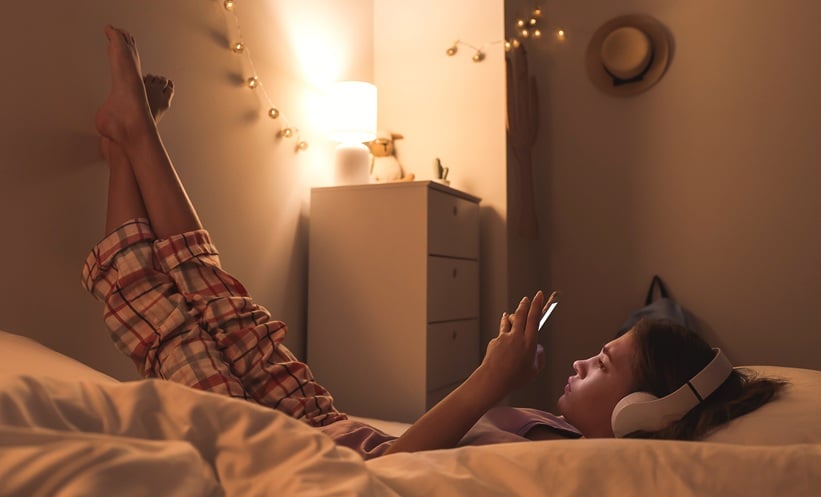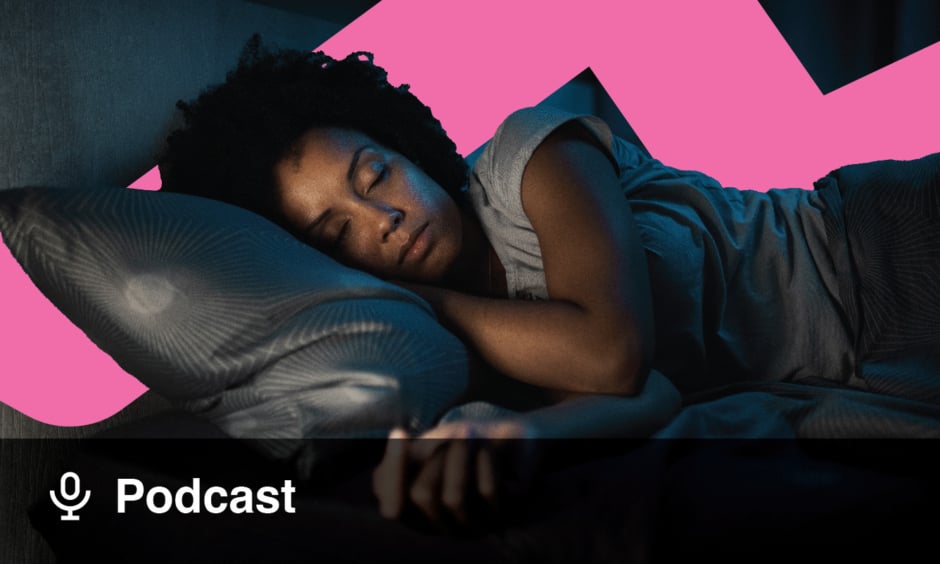NEW research finds that pre-bedtime screens, physical activity, and food intake minimally affect teenager sleep, though screens can delay falling asleep.
Screens Delay, But Don’t Shorten Sleep in Teens
In a study of 83 adolescents aged 11–14.9 years, wearable cameras recorded screen use on 83% of nights, with a median duration of 32 minutes. Researchers found that screen exposure did not significantly reduce total sleep time or affect other key sleep metrics such as sleep efficiency or wake after sleep onset. However, screen use extended sleep latency by 23 minutes, delaying the onset of teenager sleep. These results suggest that devices primarily influence the timing of sleep rather than its overall quantity, challenging assumptions that moderate screen use severely disrupts sleep duration in adolescents.
Even Short Evening Activity Can Boost Sleep in Teens
Moderate-to-vigorous physical activity (MVPA) was rare, occurring on only 7% of nights, with a median duration of 2.3 minutes. Interestingly, on nights when adolescents engaged in MVPA, they experienced an average of 34 additional minutes of sleep. This finding contradicts common guidance discouraging evening exercise, suggesting that even brief bouts of activity may enhance teenager sleep duration without compromising sleep quality. Clinicians may consider advising families that light evening activity does not necessarily interfere with sleep.
Late-Night Snacks Show Minimal Effect on Sleep in Teens
Nearly two-thirds of participants consumed food within an hour before bed, with a median energy intake of 1465 kJ. Despite conventional recommendations to avoid late-night eating, no significant association was observed between pre-bed food intake and any sleep outcome, including total sleep time, sleep latency, or sleep efficiency. This indicates that occasional late-night snacking may not meaningfully disrupt teenager sleep, although consistent patterns and high-calorie foods were not specifically examined.
Conclusion
Overall, pre-bedtime behaviours, including screens, brief evening activity, and late-night snacks, have limited impact on teenager sleep, aside from screens delaying sleep onset. These findings highlight the need to reassess current pre-bedtime guidelines for adolescents, ensuring they reflect real-world behaviour while focusing on interventions that meaningfully improve sleep quality and duration. Reference
Reference
Chao Gu et al. Pre-bed screen use, activity and food in relation to sleep in youth; a repeated measures study. Pediatr Open Sci. 2025; DOI: 10.1542/pedsos.2025-000765.








